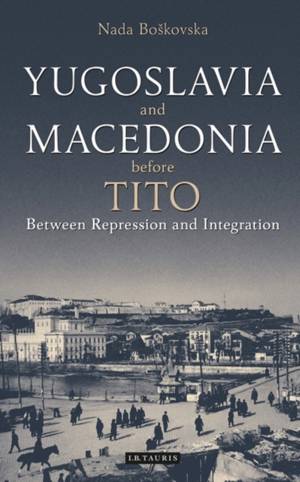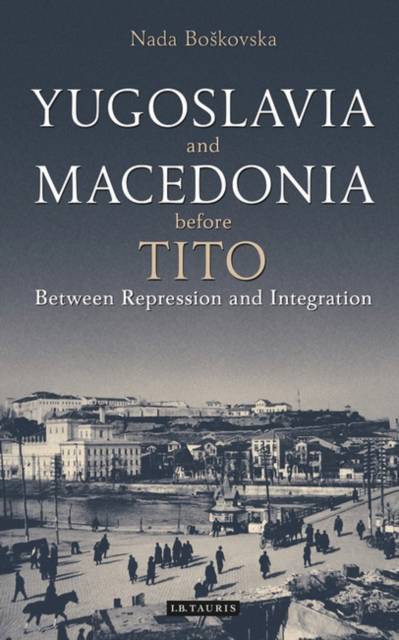
Bedankt voor het vertrouwen het afgelopen jaar! Om jou te bedanken bieden we GRATIS verzending (in België) aan op alles gedurende de hele maand januari.
- Afhalen na 1 uur in een winkel met voorraad
- In januari gratis thuislevering in België
- Ruim aanbod met 7 miljoen producten
Bedankt voor het vertrouwen het afgelopen jaar! Om jou te bedanken bieden we GRATIS verzending (in België) aan op alles gedurende de hele maand januari.
- Afhalen na 1 uur in een winkel met voorraad
- In januari gratis thuislevering in België
- Ruim aanbod met 7 miljoen producten
Zoeken
Yugoslavia and Macedonia Before TitoBetween Repression and Integration
Between Repression and Integration
Nada Boskovska
€ 79,95
+ 159 punten
Omschrijving
Held together by apparatchiks and, later, Tito's charisma, Yugoslavia never really incorporated separate Balkan nationalisms into the Pan-Slavic ideal. Macedonia - frequently ignored by Belgrade - had survived centuries of Turkish domination, Bulgarian invasion and Serbian assimilation before it became part of the Yugoslav project in the aftermath of the First World War. Drawing on an extensive analysis of archival material, private correspondence, and newspaper articles, Nada Boskovska provides an arresting account of the Macedonian experience of the interwar years, charting the growth of political consciousness and the often violent state-driven attempts to curb autonomy. Sketching the complex picture of nationalism within a multi-ethnic, but unitarist state through a comprehensive analysis of policy, economy, and education, Yugoslavia and Macedonia before Tito is the first book to describe the uneasy and often turbulent relationship between a Serbian-dominated government and an increasingly politically aware Macedonian people.
Concerned with the question of integration and political manipulation, Boskovska gives credence to voices critical of Royal Yugoslavia and offers a fresh insight into domestic policy and the Macedonian question, going beyond traditional high politics. Broadening the spectrum of discussion and protest, she reveals the voices of a people protesting constitutional and electoral fraud, the neglect of local needs and state machinations designed to create a satellite province.
Concerned with the question of integration and political manipulation, Boskovska gives credence to voices critical of Royal Yugoslavia and offers a fresh insight into domestic policy and the Macedonian question, going beyond traditional high politics. Broadening the spectrum of discussion and protest, she reveals the voices of a people protesting constitutional and electoral fraud, the neglect of local needs and state machinations designed to create a satellite province.
Specificaties
Betrokkenen
- Auteur(s):
- Uitgeverij:
Inhoud
- Aantal bladzijden:
- 384
- Taal:
- Engels
- Reeks:
Eigenschappen
- Productcode (EAN):
- 9780755601028
- Verschijningsdatum:
- 26/12/2019
- Uitvoering:
- Paperback
- Formaat:
- Trade paperback (VS)
- Afmetingen:
- 140 mm x 216 mm
- Gewicht:
- 439 g

Alleen bij Standaard Boekhandel
+ 159 punten op je klantenkaart van Standaard Boekhandel
Beoordelingen
We publiceren alleen reviews die voldoen aan de voorwaarden voor reviews. Bekijk onze voorwaarden voor reviews.









